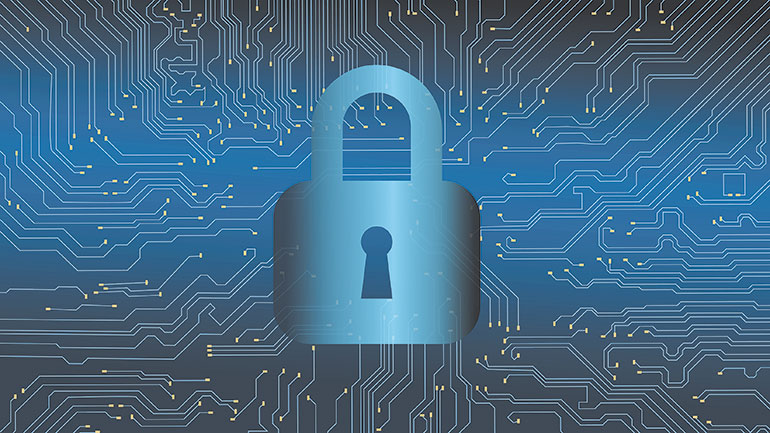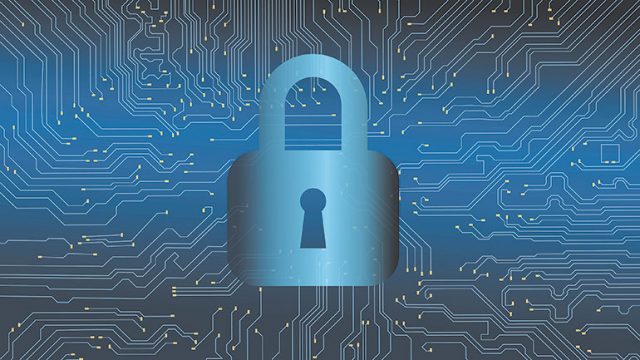Navigating the digital post-pandemic world


By Bjorn Biel M. Beltran, Special Features Writer
Digital transformation, a process that has been decades in the making, has accelerated at an unprecedented pace in the wake of the COVID-19 pandemic. Schools and universities began offering remote learning curricula, companies big and small started adopting new work-from-home models for their employees, and many have transitioned to digital businesses to keep revenue flow.
Yet with new developments come new challenges. The Organisation for Economic Co-operation and Development notes that while on the one hand, digital transformation offers immense potential throughout various aspects of society, on the other, it can also accentuate gaps and issues present in the current system.
“It is unlikely that economies and societies will return to ‘pre-COVID’ patterns; the crisis has vividly demonstrated the potential of digital technologies and some changes may now be too deep to reverse,” the organization had stated in its Digital Economy Outlook 2020.
“Faced with a future where jobs, education, health, government services, and even social interactions may be more dependent on digital technologies than ever before, failing to ensure widespread and trustworthy digital access and effective use risks deepening inequalities, and may hinder countries’ efforts to emerge stronger from the pandemic.”
Cybersecurity and data privacy are concerns that are increasingly becoming critical in a new digitally-enabled world. Addressing such issues while simultaneously navigating the constantly-evolving needs of society is a challenge that many organizations, both in the public and private sectors, face.
The case is no different in the Philippines, where many organizations are attempting their first foray into the digital world.
“It is important to note that how companies transform or pivot to digital is not a one-size-fits-all approach. Every industry and individual business will have specific needs to assess, different resources to allocate, and distinct challenges to overcome. Nevertheless, there are some universal concepts that we have witnessed across successful transformations: an ability to recognize new opportunities; the agility to capitalize on them; and the optimal culture to best support the requisite changes. When executed in harmony, they represent the art of pivot,” said TELUS International Philippines.
Accomplishing these goals depends on a number of factors, not least of all smart applications of technology. TELUS International Philippines, a firm that specializes in delivering integrated DX and CX solutions, notes that thoughtful application of technology needs to go hand in hand with continuous digital enablement initiatives to educate and upskill the team members who will ultimately be the ones utilizing these innovations to deliver better services to customers.
The benefits
Pivoting to digital is a monumental endeavor for any company, both in an operational sense and a financial one. This is also partly the reason why many businesses fail in their digital transformation, as many lack the capital and the resources to see the process through.
Yet, that leaves many companies unable to keep up with the demands of the times, which are increasingly reliant on digital platforms and technologies. Many companies keep legacy systems based on outdated technologies, keeping them from the benefits of a modernized IT infrastructure, which TELUS International Philippines points out, is no longer a luxury or an option.
“It is becoming necessary for day-to-day operations, business continuity, and data security. Additionally, as the customer journey has increasingly moved from in-person to digital transactions, updating a company’s tech infrastructure is now also directly linked to a company’s ability to provide the seamless, omnichannel customer experiences that are in-demand by today’s consumers. Overall, having a strategy to update IT infrastructure will result in increased agility and efficiency while reducing risk and better securing data on a sustainable basis,” the company said.
Businesses aiming to thrive today should recognize how IT modernization aligns a company with omnichannel needs and better positions the brand to meet its business goals. Investing in IT may even directly lead to financial benefits due to enhanced customer experience that can generate increased consumer loyalty and spending, as legacy technology often struggles with the demands of the personalized, seamless, cross-channel customer engagement that is expected today.
The challenges
Security has long been used as a reason companies have hesitated to permit remote working. But amid the pandemic, there was very little choice in the matter. Remote working, a new workplace model enabled by today’s hyperconnected society, has given companies a method of keeping some of their day-to-day operations unaffected by the pandemic without affecting their bottom line.
Yet as more employees have spread out, security risks have risen exponentially.
“That’s why it is absolutely critical to set up proper user controls and ensure employee devices — whether those are company-owned assets or the employees’ own devices — are regularly patched and updated,” TELUS International Philippines said.
“At the same time, we also firmly believe that making your employees partners in ensuring data security and cybersecurity starts with educating them regularly. Helping them understand and appreciate the ‘whys’ behind the safety protocols and procedures we implement can make a big difference in how they approach these remote work processes and guidelines.”
Such measures are necessary, but often overlooked, steps in the digital transformation process. TELUS International Philippines added that because of the immediate need for digitalization at the onset of the pandemic, many organizations had to quickly put solutions in place that kept them connected to the business, their customers and one another. Due to the unprecedented rate at which they were forced to adapt, there were difficult trade-offs that had to be made in the short-term to accommodate immediate business needs. Perhaps most notably, cybersecurity was oftentimes deprioritized in favor of expediency.
“That’s the way you end up with a very, very poor long-term design and a very panicked, rushed, unmanageable short-term solution,” the company said. “You’re in the band-aid business.”
With remote workforces likely becoming a permanent part of business moving forward, it’s critical for organizations to develop better solutions for data security. One such solution is to create a company culture that is suited for future-proofing the business.
“Culture is the foundation for long-term success. When you see an extremely agile company, it typically follows that there is something very special about its people and its culture, because, in addition to speed and responsiveness, agility also requires an element of stability,” TELUS International Philippines said.
“The importance of investing in culture cannot be overstated. A strong corporate culture fostered over time that places people and a shared set of values at the forefront of what it does equates to the ability to innovate, achieve higher customer satisfaction, and ultimately deliver stronger financial performance. Without it guiding the organization and driving decision-making, all other elements can be in place, and yet companies will see few benefits,” it added.








